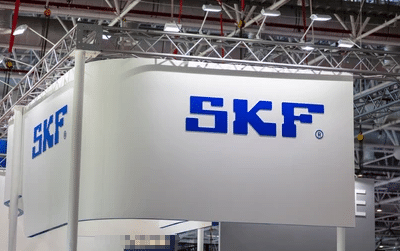
Introduction:
The food and beverage industry relies on precision, hygiene, and reliability to ensure the safety and quality of products. Bearings are critical components in food and beverage applications, from food processing equipment to packaging machinery. NSK and SKF, two renowned bearing manufacturers, have a significant presence in this industry. In this comprehensive comparison, we will explore NSK bearings and SKF bearings for food and beverage applications, highlighting their unique features, performance, and significance in the industry.
Challenges in Food and Beverage Applications:
The food and beverage industry presents unique challenges, including:
Hygiene and Cleanliness: Bearings in this sector must meet strict hygiene and cleanliness standards to prevent contamination of food products.
Corrosion Resistance: Bearings are exposed to various liquids, chemicals, and cleaning agents, requiring resistance to corrosion.
High Loads: Food processing and packaging equipment often handle heavy loads, demanding robust bearing design.
Low Noise and Vibration: Reducing noise and vibration is important for the comfort of workers and the efficiency of food processing lines.
NSK Bearings for Food and Beverage Applications:
NSK has a reputation for delivering high-performance bearings suitable for food and beverage applications. Key features and advantages include:
Advanced Material Technology: NSK employs advanced materials and coatings to enhance bearing durability and make them resistant to corrosion, crucial for hygienic environments.
Precision Engineering: NSK’s precision engineering processes result in bearings with minimal dimensional variations and tight tolerances, essential for reliable and accurate food processing.
Hygienic Design: NSK offers bearings with hygienic designs and materials that are easy to clean and disinfect, preventing food contamination.
Low Noise and Vibration: NSK bearings are engineered to minimize noise and vibration, creating a comfortable and efficient working environment.
High Load Capacity: NSK designs bearings to handle high loads, ensuring stability and reliability in food processing and packaging machinery.
Customization: NSK provides customization options to tailor bearings for specific food and beverage applications, ensuring optimal performance and hygiene.
SKF Bearings for Food and Beverage Applications:
SKF is also a prominent player in the food and beverage industry, offering bearings designed for optimal performance in these applications. Key features and advantages include:
Advanced Materials: SKF utilizes high-quality materials and coatings to enhance bearing durability, wear resistance, and corrosion resistance, crucial for food and beverage applications.
Precision Engineering: SKF’s precision engineering processes result in bearings with minimal dimensional variations and tight tolerances, ensuring precise and reliable food processing.
Hygienic Design: SKF provides bearings with hygienic designs and materials that are easy to clean and disinfect, preventing food contamination.
Low Noise and Vibration: SKF bearings are engineered to minimize noise and vibration, creating a comfortable and efficient working environment in food processing facilities.
High Load Capacity: SKF designs bearings to handle high loads, ensuring stability and reliability in food processing and packaging machinery.
Customization: SKF offers customization options to ensure that bearings meet the specific requirements of different food and beverage applications, delivering optimal performance and hygiene.
Conclusion:
In the food and beverage industry, where hygiene, reliability, and cleanliness are paramount, both NSK and SKF have established themselves as trusted providers of high-performance bearings.
The choice between NSK and SKF bearings for food and beverage applications should consider specific requirements such as hygienic design, corrosion resistance, noise and vibration levels, high-load capacity, and customization needs. By carefully evaluating these factors, food and beverage professionals can make informed decisions that enhance the safety, quality, and efficiency of food processing and packaging operations, ensuring the delivery of safe and high-quality products to consumers.


